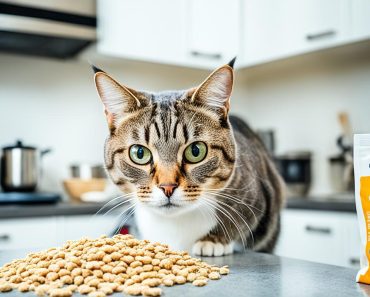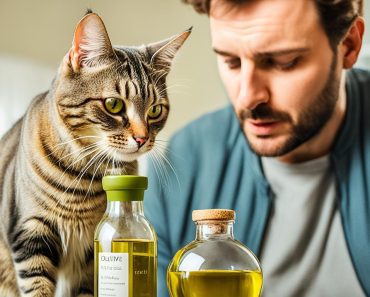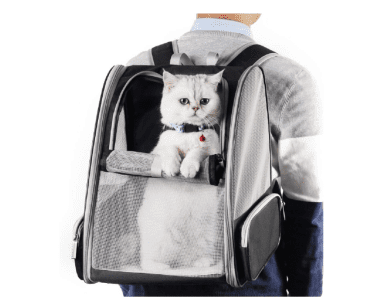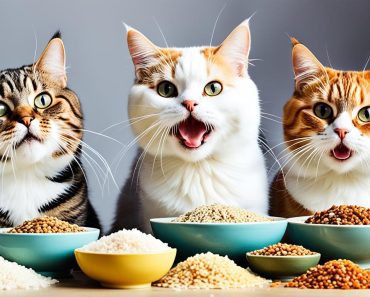As a cat owner, you may be curious about what foods are safe to share with your feline friend. One question that often arises is: can cats eat crab? While cats are obligate carnivores, meaning their diet should primarily consist of meat, there are some exceptions when it comes to certain seafood. Let’s explore whether cats can safely enjoy crab and what precautions should be taken.
Can Cats Eat Crab? Yes, they can, as an occasional treat.
- Feeding cats cooked crab in moderation and occasionally is generally safe.
- Raw crab should be avoided due to the risk of bacterial and parasite contamination.
- Imitation crab meat is not recommended for cats due to its high carbohydrate content.
- Lobster can be given as a special treat, but it should be cooked and free of seasonings.
- Seafood, such as tuna and salmon, can be included in a cat’s diet in moderation, but raw fish should be avoided.
Is Crab Meat Good for Cats?
Crab meat can be a delicious treat for your feline friend, but it’s important to understand its role in their diet. While cats are carnivores and require a diet high in protein and moderate in fat, crab meat should not be considered a staple food for them.
Crab meat does contain protein and some fat, which are essential for cats’ overall health and wellbeing. However, it does not provide all the necessary nutrients that cats need to thrive. Feeding cats too much crab meat on a regular basis can lead to stomach upset without offering significant nutritional benefits.
As responsible cat owners, it’s crucial to prioritize feline nutrition and ensure that your furry companion is receiving a balanced diet that meets their specific dietary requirements. While it’s okay to occasionally offer crab meat as a special treat, it should not replace the main sources of nutrition in their diet.
If you’re looking to add variety to your cat’s diet, consult with your veterinarian. They can suggest other protein sources and dietary supplements that are more suitable for meeting your cat’s nutritional needs.
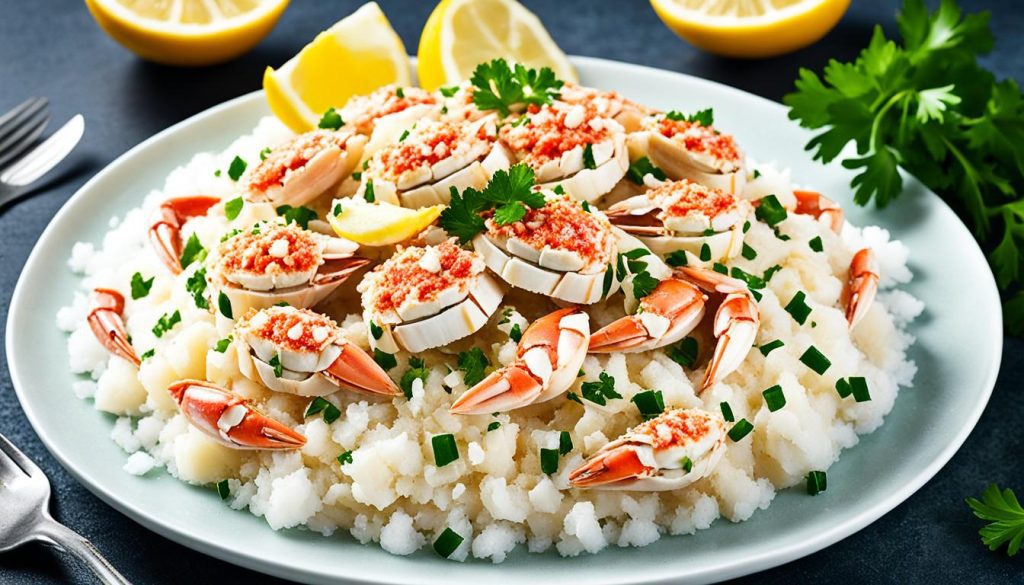
Can Cats Eat Raw Crab?
Feeding cats raw crab is not safe for their health and well-being. Raw seafood, including crab, can contain harmful bacteria, viruses, and parasites that can make cats sick. To ensure the safety of your beloved feline friend, it is crucial to cook the crab meat thoroughly before offering it to them.
Cooking the crab meat helps eliminate any potential pathogens that may be present in the raw meat, making it safe for cats to consume. Feeding cats the legs and shells of crab is not recommended, as they can be difficult to chew and pose a choking hazard. Additionally, the sharp edges of crab shells may cause mouth and teeth damage to cats.
When preparing crab for your cat, it’s best to feed them cooked meat from the crab without any seasonings or spices. This ensures that your cat receives the nutritional benefits of crab meat without any potential harmful effects.
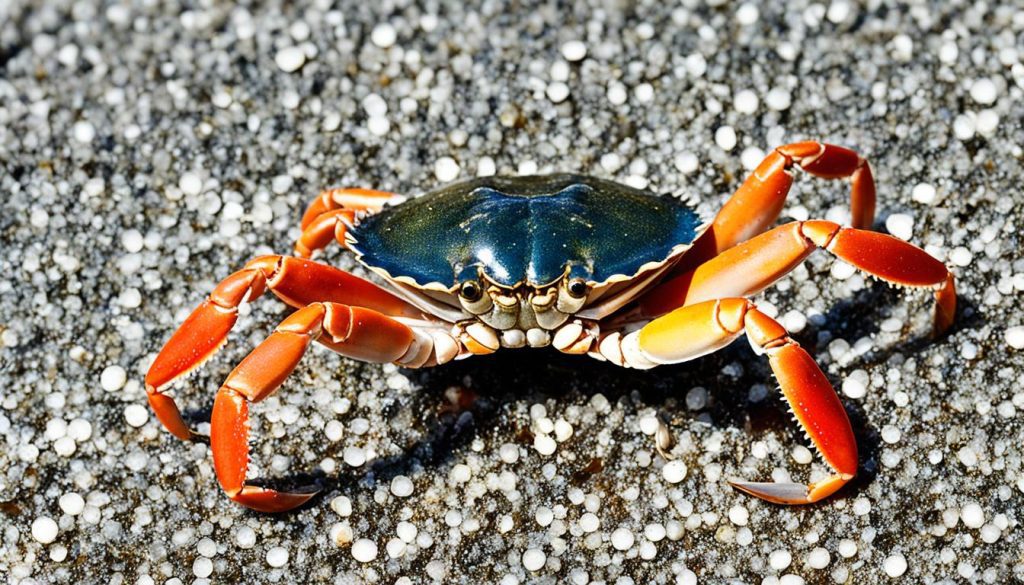
Remember, while crab can be enjoyed by humans, it is important to be cautious when including it in your cat’s diet. Always consult with your veterinarian to ensure that the food choices you make for your cat align with their dietary needs for optimal cat health.
Can Cats Eat Imitation Crab?
Imitation crab, also known as crab sticks, is not recommended for cats. It is made from surimi, a paste made from ground-up seafood. While it may be tempting to share this crunchy treat with your feline friend, it’s important to understand that imitation crab meat is not suitable for their dietary needs.
Imitation crab meat is generally high in carbohydrates and often contains added salt, sugar, preservatives, and flavorings. These additives can have negative effects on a cat’s health. Feeding cats too much imitation crab can lead to dehydration, obesity, bladder stones, and even high blood pressure. It is best to avoid giving your cat imitation crab and instead focus on providing them with protein sources that offer more nutritional value.
If you’re looking for alternative treats for your cat, there are plenty of other options available. Some examples include freeze-dried meat treats, cooked chicken, or even small pieces of fresh fish like salmon. These options provide a more natural and nutritious choice for your cat’s diet, helping to maintain their overall health and well-being.
Is Lobster Safe to Feed Cats?
When it comes to treating our feline friends, lobster can be a delightful indulgence. While it is safe to feed cats cooked lobster in moderation, it should not replace their regular diet. Cooked lobster meat provides some nutritional benefits, including essential amino acids. However, it is crucial to ensure that the lobster is plain and free from seasonings or spices that can be harmful to cats.
When serving lobster to your cat, it is important to remove the shell to prevent choking hazards and potential injuries. Although cats can enjoy lobster as a special treat on occasion, it should not be a staple in their diet. A well-balanced and complete cat diet should consist of appropriate commercial cat food that meets their specific nutritional needs.
Is Seafood Safe for Cats?
When it comes to cats and seafood, there are a few things you need to know. While certain types of seafood can be included in a cat’s diet in moderation, it’s important to understand the guidelines for their safety and well-being.
Tuna, salmon, and sardines are examples of seafood that can be beneficial for cats. These fish are rich in protein and omega-3 fatty acids, which are essential for their overall health and feline nutrition. However, it’s crucial to avoid feeding raw fish to cats because raw fish contains thiaminase, an enzyme that can lead to thiamine deficiency.
When offering cooked fish to your cat, always make sure to remove all bones to prevent any potential choking hazards. It’s also important to source seafood responsibly as it can be contaminated with harmful bacteria and chemicals. Additionally, keep in mind that cats can have allergies to seafood, so it’s necessary to monitor them closely when introducing new treats.
While seafood can be a part of your cat’s diet, it should not be the main component. Instead, it is best to offer seafood as an occasional treat. Remember, consulting with your veterinarian is always recommended before making any significant changes to your cat’s diet.



